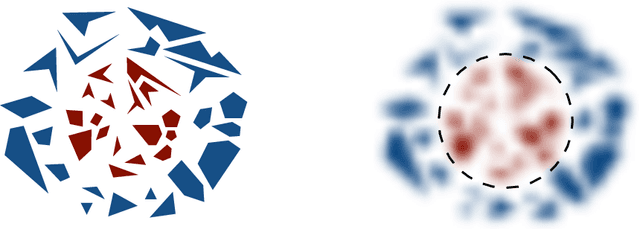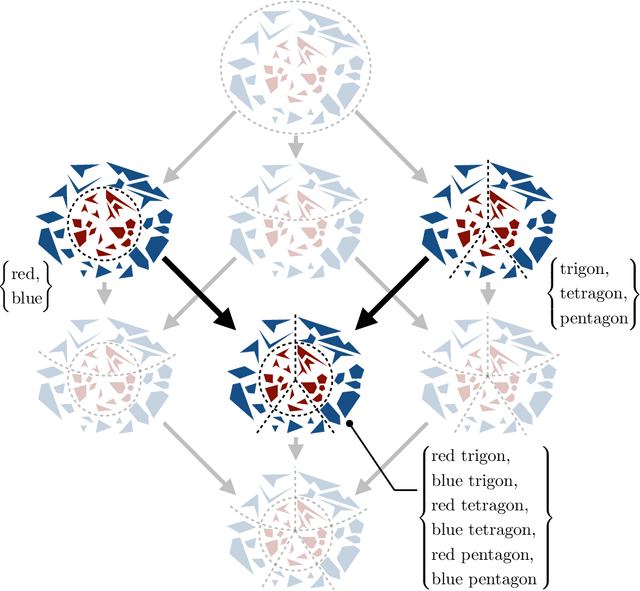A Group-Theoretic Approach to Abstraction: Hierarchical, Interpretable, and Task-Free Clustering
Paper and Code
Jul 30, 2018



Abstraction plays a key role in concept learning and knowledge discovery. While pervasive in both human and artificial intelligence, it remains mysterious how concepts are abstracted in the first place. We study the nature of abstraction through a group-theoretic approach, formalizing it as a hierarchical, interpretable, and task-free clustering problem. This clustering framework is data-free, feature-free, similarity-free, and globally hierarchical---the four key features that distinguish it from common clustering models. Beyond a theoretical foundation for abstraction, we also present a top-down and a bottom-up approach to establish an algorithmic foundation for practical abstraction-generating methods. Lastly, using both a theoretical explanation and a real-world application, we show that the coupling of our abstraction framework with statistics realizes Shannon's information lattice and even further, brings learning into the picture. This gives a first step towards a principled and cognitive way of automatic concept learning and knowledge discovery.
 Add to Chrome
Add to Chrome Add to Firefox
Add to Firefox Add to Edge
Add to Edge